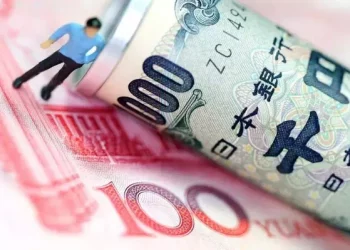The Bank of Korea (BoK) announced on Wednesday that it will take “various measures” to stabilize the foreign exchange market, following significant volatility in the South Korean Won (KRW) on Tuesday. The central bank’s statement comes after political unrest and President Yoon Suk Yeol’s controversial declaration of “emergency martial law,” which fueled market jitters and caused the USD/KRW exchange rate to spike to its highest level since October 2022.
BoK Measures to Calm Markets
The Bank of Korea said it would begin increasing short-term liquidity measures starting Wednesday, and also loosen collateral policies in its repurchase agreements (repo operations) to address potential bond market instability. The central bank also made provisions for special loans to inject funds into the market if necessary, signaling its readiness to intervene further to stabilize financial conditions.
KRW Volatility Driven by Political Crisis
The South Korean Won (USD/KRW) surged to 1,444.05 on Tuesday in reaction to the political uncertainty surrounding President Yoon’s martial law declaration, which he said was a response to accusations that the opposition Democratic Party was sympathetic to North Korea. The dramatic spike in the exchange rate reflected investor anxiety over the potential escalation of political tensions in the country.
However, after the South Korean parliament rejected the martial law declaration, the Won stabilized, and USD/KRW retreated to around 1,415 early Wednesday. This easing of pressure in the FX market was further bolstered by President Yoon’s decision to lift the emergency military rule he had imposed overnight, signaling a de-escalation of political tensions.
Political Fallout: Impeachment Threat Looms
In the aftermath of the political turmoil, South Korea’s opposition party announced plans to initiate impeachment proceedings against President Yoon unless he resigns immediately. This development has added further uncertainty to the already fragile political and economic environment.
Related Topics:
























